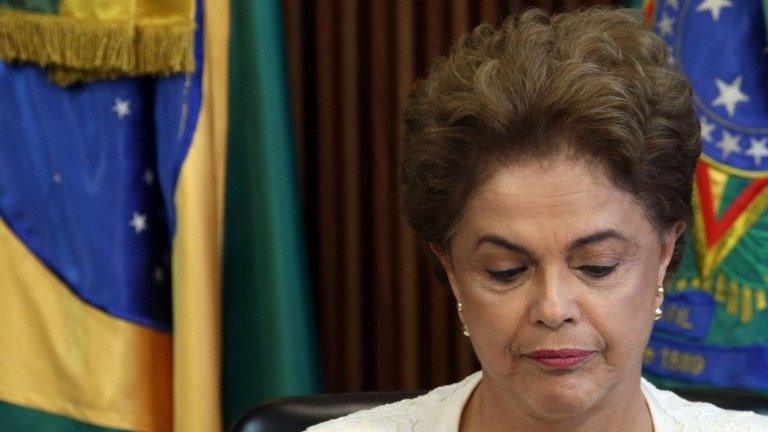Brazil crisis: Rousseff tells BBC she will fight on
- Published
Brazil's President Dilma Rousseff tells Wyre Davies the impeachment process is "illegal"
Brazil's beleaguered President Dilma Rousseff has told the BBC she is an "innocent victim" and she will fight on as possible impeachment looms.
She vowed to "keep fighting... to come back to government if the impeachment request is accepted".
Ms Rousseff is accused of manipulating government accounts, which she denies.
The Senate will decide whether to start an impeachment trial next week. If that happens she will be suspended from office for 180 days.
Recent polls conducted by Brazil's major newspapers suggest that a majority of the 81 senators will vote in favour of the trial.
In the wide-ranging interview with the BBC's Wyre Davies, President Rousseff also said:
"not enough efforts" had been made to tackle corruption in Brazil, but "the degree of effectiveness" increased during her administration
receiving the Olympic torch for the Rio 2016 Games was a "bittersweet moment", as there was no certainty that she would attend the summer event as president
torture in prison under the military government in the 1970s was common practice, reliving her three years of incarceration
'Resist, resist, resist'
"Yes, I believe, indeed, that I am a victim. And, of course, yes I am innocent. And at the same time, I am an innocent victim," Ms Rousseff said.
"What we in the government believe and what my supporters believe is that the ongoing impeachment process is illegitimate and illegal.
"Because it is ultimately based on a lie, i.e. an indirect election under the guise of an impeachment process."
And the president stressed: "What we will do is to resist, to resist, and to resist. And further fight to ensure that we will come out victorious on a merit basis and resume office."
Ms Rousseff is accused of manipulating budget figures in 2014 to make her government's economic performance appear better than it was - ahead of her re-election.
The president has defended her government's fiscal measures as common practice in Brazil.

Analysis by BBC's Wyre Davies
Dilma Rousseff, who I've watched and observed closely over recent weeks as the likelihood of impeachment has loomed closer, seemed more relaxed and prepared to smile than she's been for some time.
She's never come across as a supremely confident politician with a zeal for the hurly-burly of politics, especially in Brazil's brutal deal-making party system.
Perhaps, in one way, the president has become resigned to her immediate fate - that the Senate will vote to subject her to a full impeachment trial, triggering her suspension from the presidency for up to 180 days.
On the other hand, Ms Rousseff sounded more determined than ever to fight on - to come back after suspension, and resume the last two years of her term in office.
The president is absolutely convinced of the unfairness and illegality, as she puts it, of the case against her.
On the wider matter of corruption in her government, she insisted that she knew nothing of the rampant corruption at the state oil giant Petrobras, despite being the former chairman of the board.

Last month, the lower house of Brazil's Congress comfortably approved starting impeachment proceedings against her.
The Senate is expected to vote on the issue next week.
If she is impeached, Vice-President Michel Temer will take over as interim president.
Ms Rousseff has accused him of being one of the ringleaders of the "coup" attempt against her.
Last month, a Supreme Court judge ordered the lower house of Congress to create a commission to analyse whether impeachment proceedings against Mr Temer should go ahead over allegations that he manipulated government accounts to hide a growing deficit.
Mr Temer rejects the accusations.

What happens next?
Senate vote on trial: A simple majority is enough to suspend her for up to 180 days while she is put on trial. Vice-President Michel Temer would step in during this period.
Impeachment vote: For Ms Rousseff to be removed from office permanently, two-thirds of the Senate would have to vote in favour. Mr Temer would remain president for an interim period should this happen.
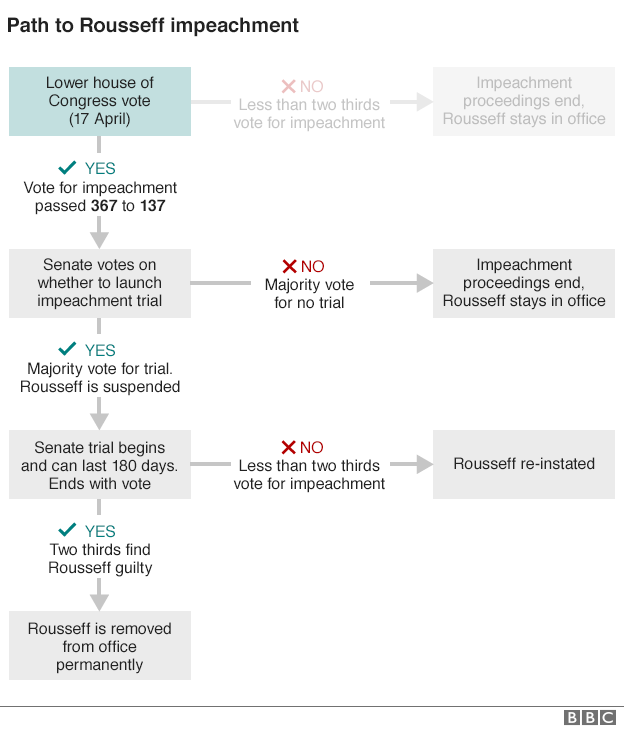
Apart from the impeachment proceedings, Ms Rousseff could also be facing a probe into alleged obstruction of justice.
Prosecutor-General Rodrigo Janot sent a request to the Supreme Court on Tuesday requesting an investigation into allegations Ms Rousseff tried to block a major corruption investigation into state-owned oil company Petrobras.
The president dismissed the allegations on Wednesday, calling them "irresponsible".
- Published31 August 2016
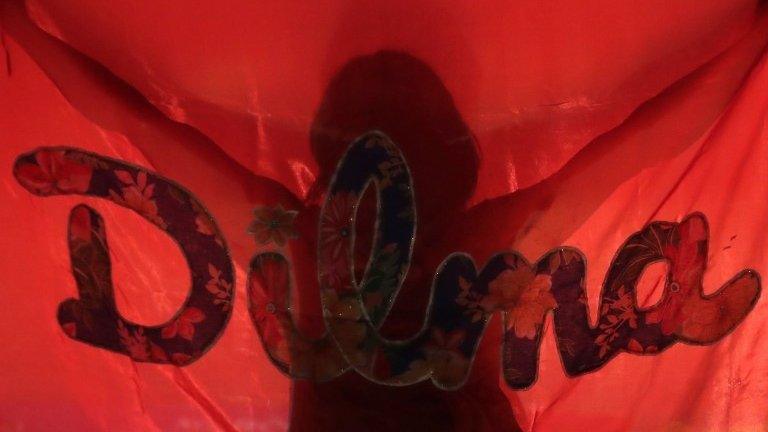
- Published8 April 2018
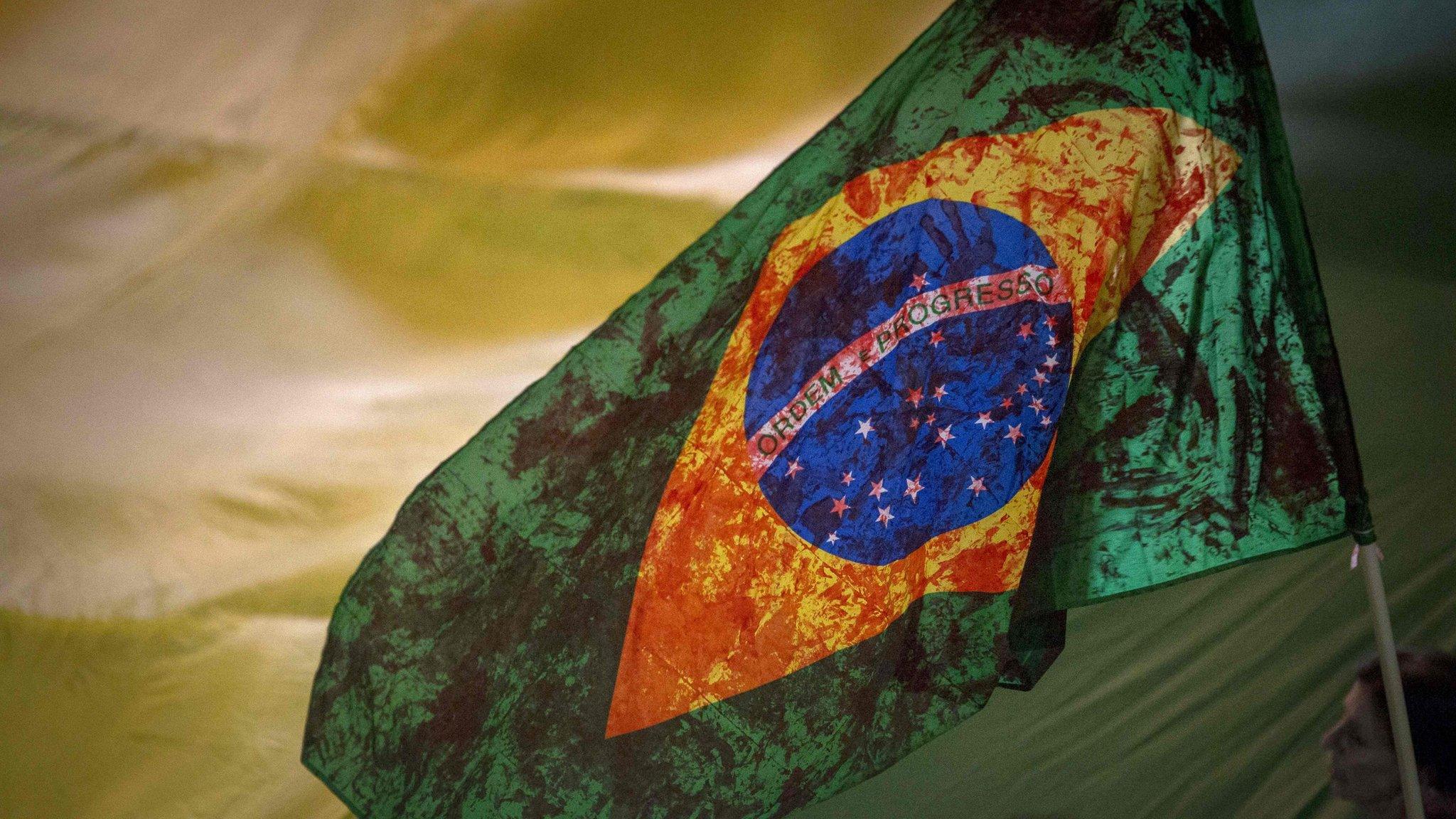
- Published13 April 2016
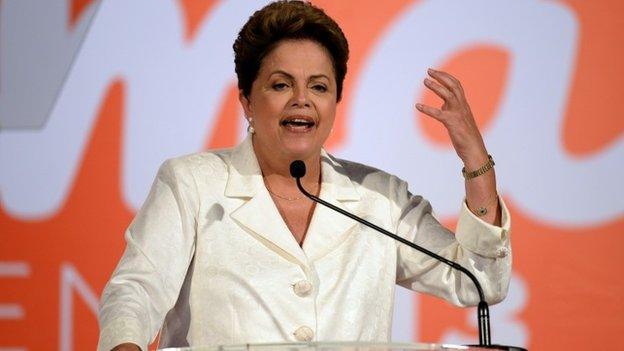
- Published18 April 2016
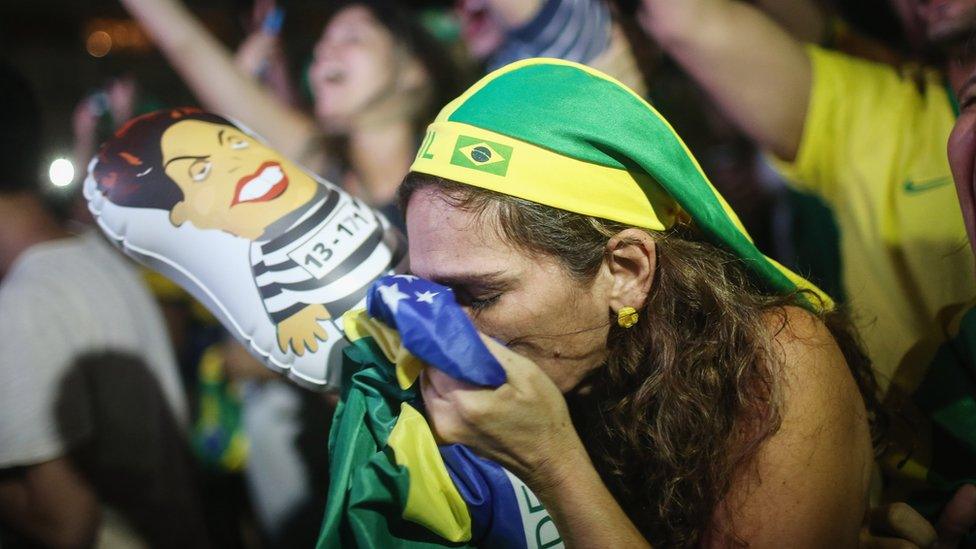
- Published12 May 2016
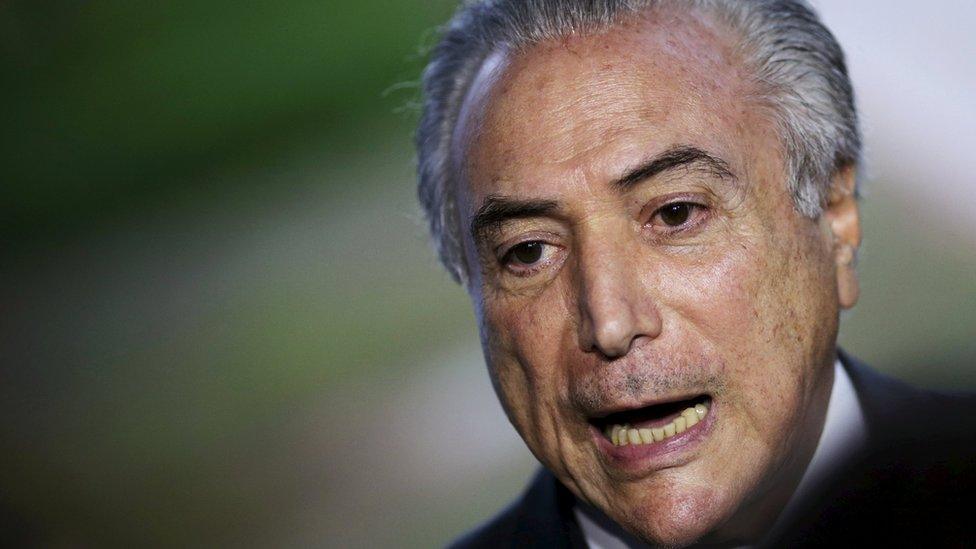
- Published12 May 2016
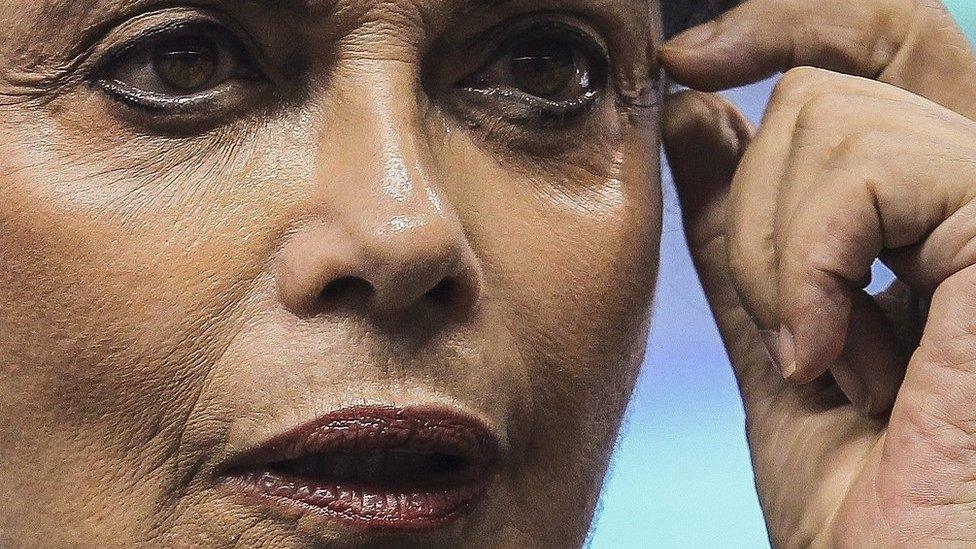
- Published29 March 2016
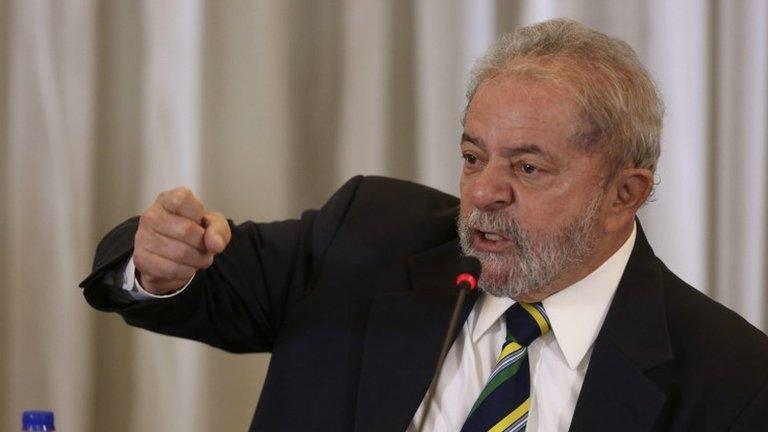
- Published4 March 2016
